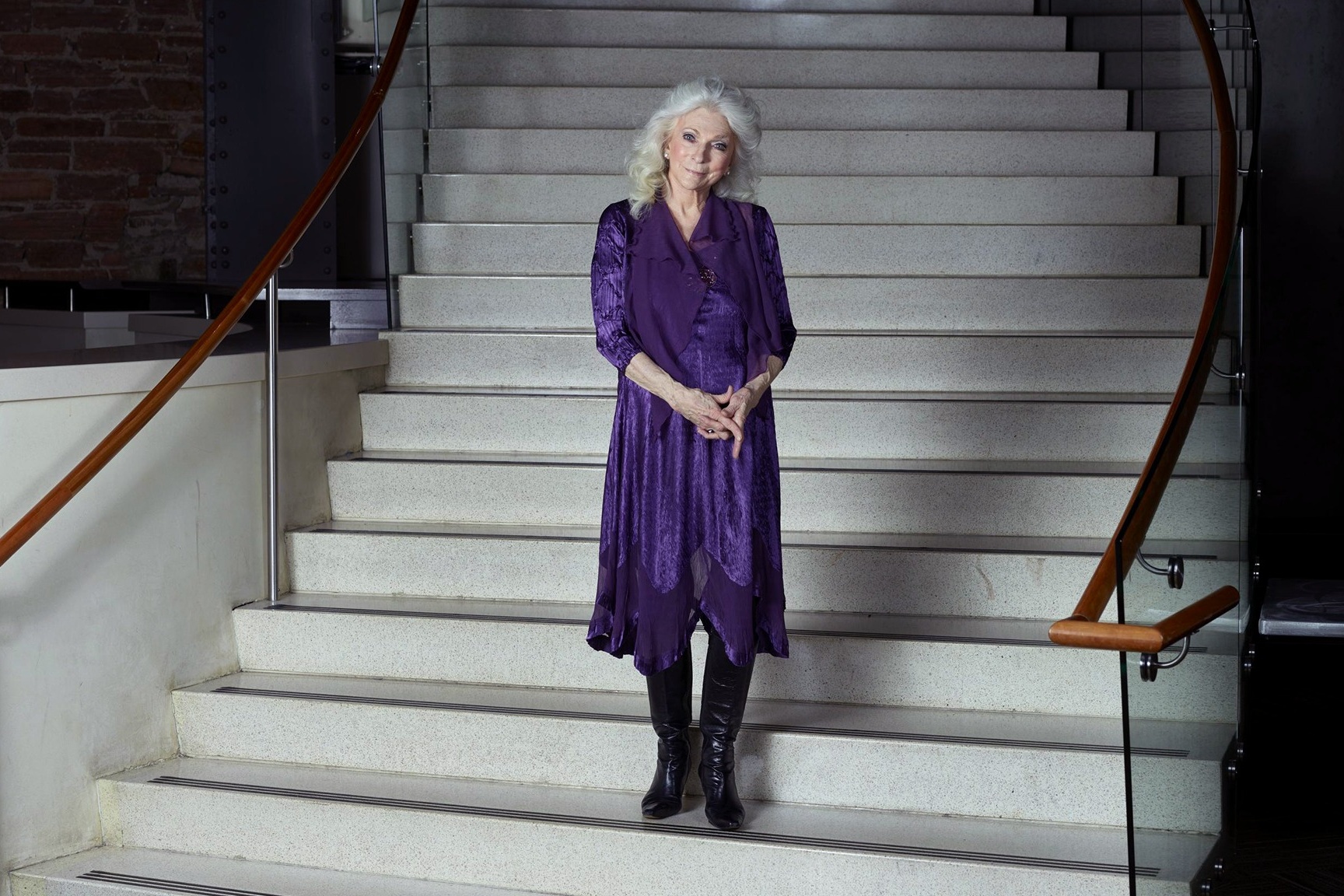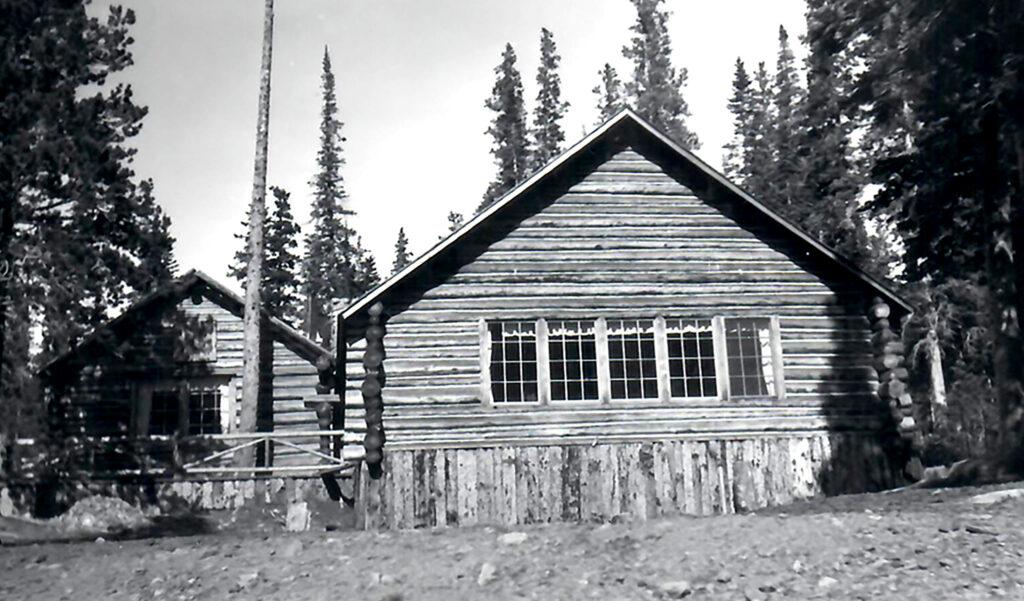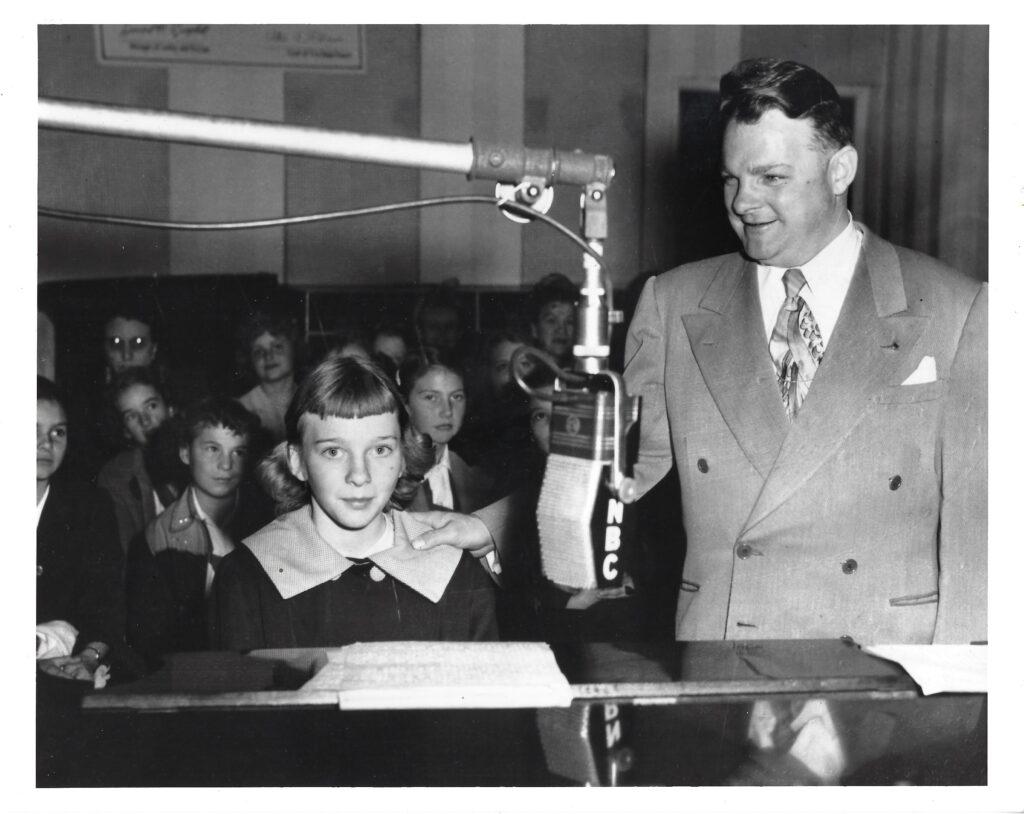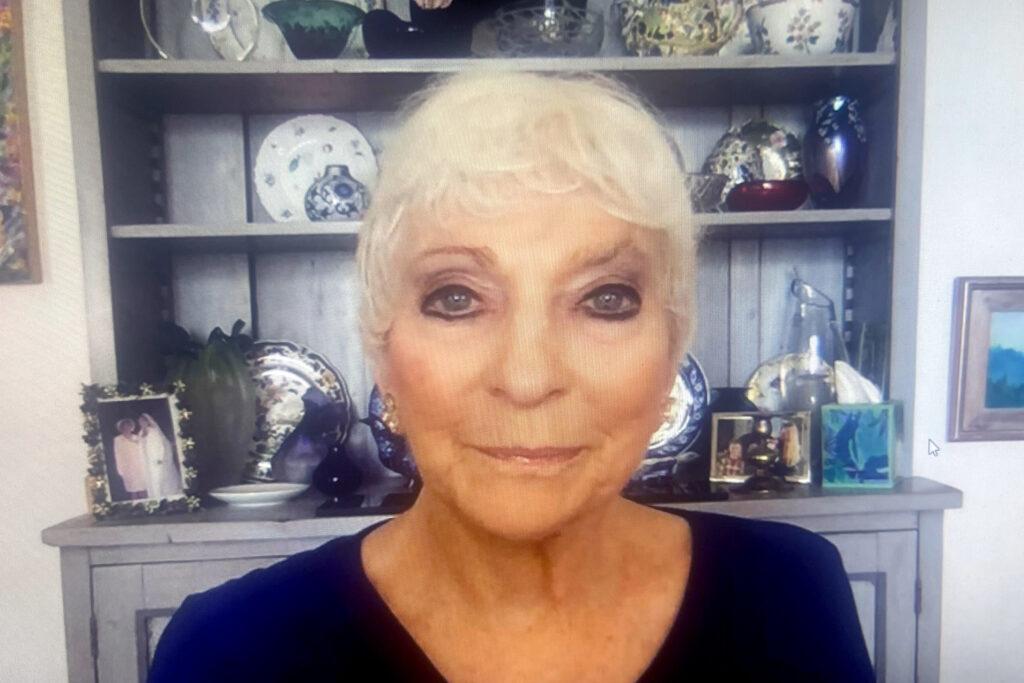
Before her 55 albums, before her seven Grammy nominations, Judy Collins baked bread in a wood-burning stove for hungry hikers in Rocky Mountain National Park.
In 1958, she and her first husband Peter Taylor became summer caretakers of the now bygone Fern Lake Lodge. It was where an 18-year-old Collins began transitioning from classical piano to the guitar, performing songs like Woody Guthrie’s “This Land Is Your Land” for what would no doubt be the smallest crowds of her budding career.
Collins, now 85, still dreams of Rocky Mountain National Park, which is why she was quick to sign a letter in support of the Rocky Mountain Conservancy, the park’s longtime non-profit partner. It reads, in part, “I’m a Colorado girl, raised in Denver. I’ve hiked Rocky’s trails and walked those miles and experienced that beauty.”
In an exclusive interview, Collins spoke with Colorado Matters Senior Host Ryan Warner about her memories of Rocky Mountain National Park, and becoming an ambassador for the conservancy.
This interview has been edited for length and clarity
Ryan Warner: You were 18. You and your then-husband Peter Taylor indeed landed a special gig. What was it?
Judy Collins: Well, we needed a job. We went up to Estes Park, and looked in the employment pages of the newspaper. And there was an ad for a job to run a lodge in Rocky Mountain National Park. And we said, ‘Whoopee!’ And it said, ‘You have to go over to Bear Lake Lodge and meet up with the fellow who will teach you everything you want to know, and hopefully hire you.’ So we did that. And Bear Lake Lodge is a beautiful ... well, it was. They're all gone now, these lodges, for one reason or another. And so we were hired.
And this was an introduction to a dream. We were told we would be working at a lodge called Fern Lake Lodge, a nine-mile hike round trip, and we'd be given our 50-pound backpacks, and a week to hole up in Bear Lake Lodge, where I would be taught to bake pies and bread on a wood stove and how to cope with the fact that there was no electricity and there was no water running. And so we were thrilled, and we got the job.
Warner: This is the Fern Lake Lodge, as you say– lost to history with its nine cabins. Indeed quite a hike in. That first trek was in 1958. How was it, making all of the food on a wood-burning stove?
Collins: My husband did the chopping of the wood. Every week there was a mule pack that would come up with all of our gear and a bottle of whiskey. It was Jim Beam, once a week. And we had guests for lunch who would climb the trails and join us. And I would serve these wonderful sandwiches that I made on homemade bread, baked on the wood stove. And by the end of the summer, I was telling people that they didn't know what they were missing, and they didn't even know how to bake a loaf of homemade bread, unless they were doing it on a wood stove. It was a dream, and it was delicious.
Peter did the bringing down of the water from the springs above the lodge. And pipes came right into the lodge. We turned old heaters upside down, so that we had a hot shower most every day. I learned how to manage it all very well.
After we served lunch (I had been playing the guitar at that point), I would sit down on the porch and sing “This Land is Your Land,” etc. with my guitar, and entertain. So it was probably the first place that I really entertained other people.

Warner: Many of these memories make it into a letter you signed on behalf of the Rocky Mountain Conservancy, the park’s longtime nonprofit partner. You've become an ambassador for them. In this letter, you invoke music, particularly Woody Guthrie's “This Land is Your Land.” Is that a tune you've recorded?
Collins: Well, I'm trying to think if I have.
Warner: I like that the career is so prolific that you have to think about it.
Collins: I think not.
Warner: Do you have a favorite lyric in the song?
Collins: I love the first verse, ‘This land is your land, and this land is my land. From California to the New York island.’ You can sing along! ‘From the Redwood Forest to the Gulf Stream waters. This land was made for you and me.’
And our hikers, we met so many interesting people. We had a little journal that people signed when they came, and it survives at the Library of Congress. A batch of my archives went to the LOC.
I remember one of our guests was fishing in Fern Lake and he lost his wedding ring. He came upstairs and told us about it. And I said, ‘Well, give me a few days. I'll get around it and I'll go down and see what I can do.’ So I did. I plunged in and I dug around with my feet. And it was a very, very clear lake. And I found it. And we called him. (We had a telephone, by the way.) We called this gentleman. He came back up, of course, and he brought us avocados and pears and oranges.
Warner: Judy, when was the last time you've stood on that property? I know you've been back since.
Collins: I have been back with my husband, my current husband. I always called Peter, Peter Taylor, my ‘starter husband.’ But Louis (Nelson) and I have been up, all my family, my granddaughter, my son, my siblings.
And when we finished that summer, we decided that we wanted to buy the lodge. We wanted to run it. We wanted it to be there so that we could work on it and support it and do the things that needed to be done. It was a gorgeous place.
Warner: But you didn't get to buy it.
Collins: No. We didn't. We figured the price was about $10,000, which we figured we could get our families to invest in for us. But a pronouncement came from the National Park Service. It was called Mission 66. The NPS decided they would remove all commercial businesses from the park. Now, you have to understand that this was not a commercial business. This was a dozen people, maybe, who climbed the trail and wound up at our doorstep at 11:00 or 12:00, and we served them lunch.
Fern Lake Lodge also had a fire, which took care of it, I'm afraid, in not the way you would want. But it was priceless. It was a priceless memory. And when I heard from the Rocky Mountain Conservancy, that they had this idea that they wanted me to be a goodwill ambassador, this is something that I am so proud of and so happy about. It's really thrilling to know that I might do something to encourage people to take part in keeping the park safe.

Warner: Your father, Chuck Collins, was a singer and radio personality on stations including KOA in Denver. He was also blind.
Collins: Yes, he was.
Warner: He managed to trek into Fern Lake Lodge to see you. How did he manage that?
Collins: Oh, he was hot to get there! He said, “I'm coming.” And of course they came. My mother walked in front of him, and he held onto a pine bow and walked those miles. That's a hard trail. It's hard for anybody who's got the full use of their eyes and their ears and their feet. But he came up. Oh, he wouldn't have missed it in the world. And he was the one who said to me– he looked down with his toes and his feet and he said, “This is a puncheon floor.” I had no idea what he was talking about.
It's the intermingling of the tops of pine chunks. And then it's all sanded down and it all fits together like a puzzle. But it's called a puncheon floor. He saw it right away. My father was unusual in the fact that he didn't use a dog or a cane, and he had grown up from the age of four using what he called his ‘radar’ to get around. It meant that he couldn't wear, for instance, soft-soled shoes because they don't make a noise. And the noise of the heels of his shoes on the pavement is how he made his way around Denver.
Warner: In the letter that you wrote on behalf of the Rocky Mountain Conservancy, you use a word a lot, and it's the word ‘dream.’ Reading the letter, I gather you still dream of Rocky Mountain National Park with some frequency.
Collins: I do. It was the most delicious sort of gift to us. I suppose it was like a honeymoon, in a way. And it was everything we could've wanted. We loved the mountains. We would come out of our little cabin down by the lake, and start the day. One of the first things we did was to go out onto the porch and sit there and watch the martins come down to drink, and wait for the birds to start up.
And we had a little tiny, pretend chess board, and we would play every day. And every day Peter would beat me. One day I beat him, and we never played chess again. And so there was the light, the Rocky Mountain light. And of course it was summertime. It wasn't winter, but we could imagine that lake frozen over and skating on it. It was a beautiful lake. We swam in it quite often.

Warner: I can see how these memories would infiltrate your dreams years later. And I want to note that, of course, a gateway to Rocky Mountain National Park is Estes Park. And I think of your song, The Blizzard, which invokes Estes. Judy Collins, you are 85. Why do you still tour?
Collins: Well, it's in my blood. I know how to do it. I do it with joy. I get to sing every night. That's a dream come true as well. So I'm just cooking with gas, I guess. I just came back from my personal trainer and she said, “You are so strong.” I said, “Well, you are the one that notices that.” She puts me through my paces.
Warner: Whoa.
Collins: She wants to be sure that I'm going to continue my bone strength, because I'm thin, always struggling with weight. And of course people who have these qualities or deficiencies, whatever you want to call them, have osteoporosis. So I have to be sure that I'm working all the time on the bones. I walk all the time, so that's good.
Warner: Thank you so much for sharing these memories with us. I'm really pleased to share them with other Coloradans.
Collins: Thank you so much for talking with me about one of my favorite places in my life.









